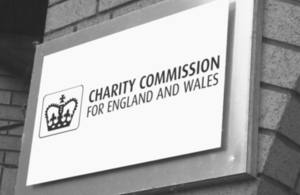Watch out for ‘Payment Diversion Fraud’ - keep your school funds safe
The Charity Commission, the independent regulator of charities in England and Wales, is issuing this alert to charities as regulatory advice under section 15(2) of the Charities Act 2011.

press office image
The purpose of this alert is to provide knowledge and prevention advice to independent schools and parents of students, in order to prevent them from falling victim to payment diversion fraud – a fraud that involves falsely creating or diverting payments. Information is based on reports made during the past month to Action Fraud, the UK’s national fraud reporting centre.
What to look out for
Fraudsters are placing themselves in the middle of transactions between parents and schools. The fraudster contacts the parents outlining details and payment instructions for the latest school fees. Initial contact appears to primarily be made via email and often from the school’s own compromised email system.
However, the National Fraud Investigation Bureau (NFIB) has also seen instances where the email address used is similar to that of the school, for example using ‘nn’ instead of an ‘m’.
The victim then makes the required payment into the bank account, which is in the control of the fraudster. By the time the fraud has been identified, the funds have already disappeared.
In several instances there has been a strong element of manipulation to the scam, with fraudsters building trust with victims through contact by phone, email or other direct messaging. Often, the fraudulent email promises a discount for early fee payments.
Prevention advice for schools and parents
Schools
-
ensure all administration staff are aware of this fraud
-
ensure staff are aware of cyber-protection protocols and understand NOT to open links or attachments from unexpected or suspicious emails. Doing so may compromise the school’s email system
-
review password protocols and ensure those that are used are strong, as long as possible and contain a combination of letters as well as numbers and symbols
-
review internal policies and procedures for managing fee payments and ensure these are communicated clearly to parents
-
consider using a ‘payment gateway’ for the receipt of funds from parents
-
ensure computer systems are secure and that antivirus software is up to date
-
to help combat ‘typo squatting’, consider registering similar domain names
Parents
-
always verify an email payment change request directly with the school, via the official, established contact details you have on file. Be alert to unexpected or notably increased fee requests
-
be vigilant and always scrutinise requests to amend payment procedures. Check for inconsistencies and grammatical errors in external emails, such as a misspelt school name or a slightly different email address; these can be warning signs of fraud
-
don’t be afraid to question and to verify details if being asked to make fee payments into a new bank account
If you or your school have fallen victim to payment diversion fraud, you should report it to Action Fraud by calling 0300 123 2040, or visiting the Action Fraud website.
If you are a charity, you should also report it to us as a serious incident.
Serious incident reporting helps the Commission to assess the volume and impact of incidents within charities and to understand the risks facing the sector as a whole; where appropriate, the Commission can also provide timely advice and guidance to a charity.
Michelle Russell, Director of Investigations, Monitoring and Enforcement at the Charity Commission, said:
We are urging all charitable schools and parents to be alert to this. If they suspect they’ve fallen victim to payment diversion fraud, they should report this immediately to Action Fraud, and to the Commission, under its serious incident reporting regime.
By working together we will ensure these fraudsters do not prey on charities, parents and pupils in this way. Such scams not only divert precious funds away from the pupils and schools that need them, but harm public trust and confidence in the charity and education sectors more widely.
Julie Robinson, General Secretary of The Independent Schools Council, added:
Schools and fee-paying parents have been targeted by fraudsters posing as school accounts departments seeking alternative payment arrangements. We are supporting the Charity Commission in raising awareness among schools and parents, and we urge institutions to alert their stakeholders to this unlawful activity.
Ends.